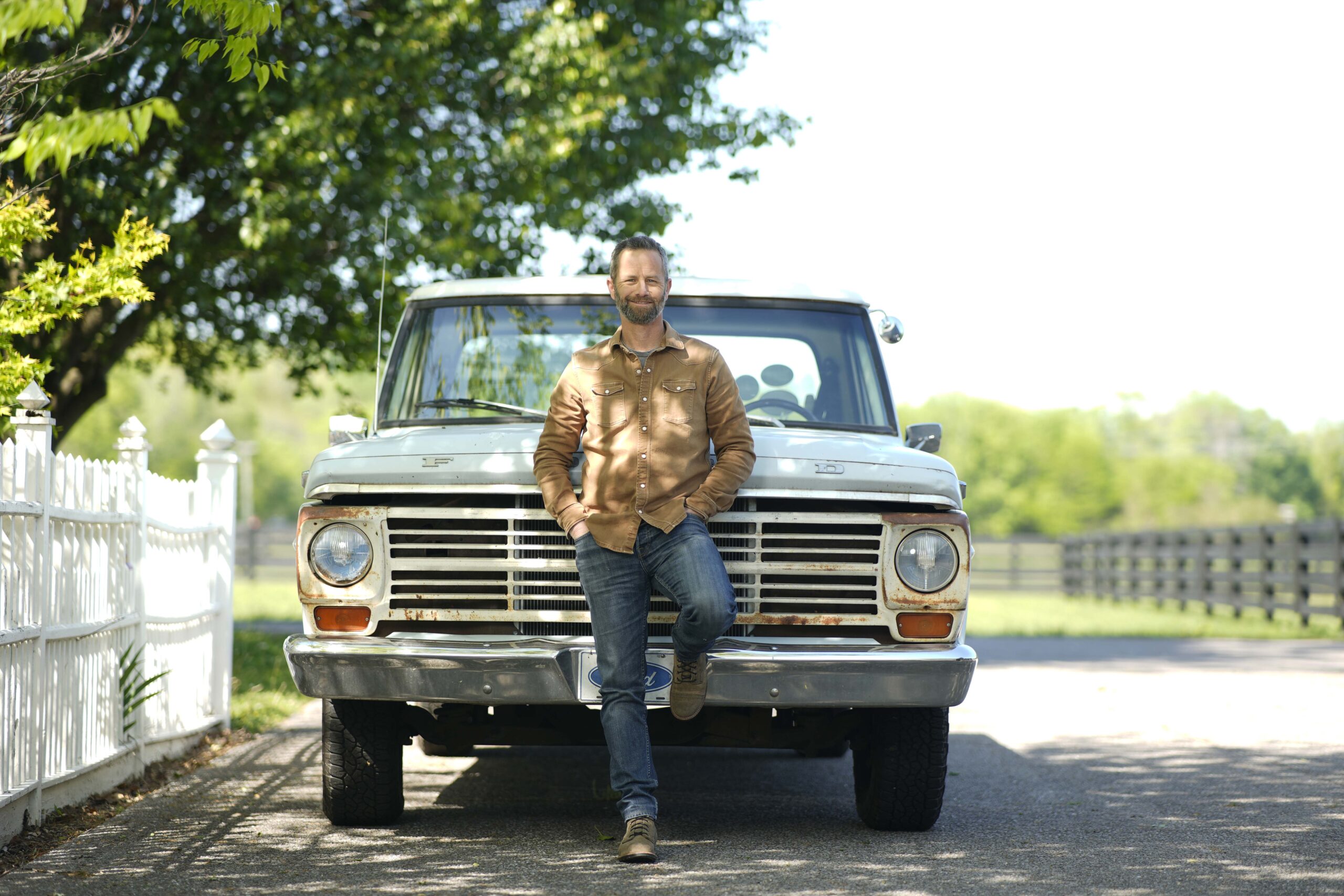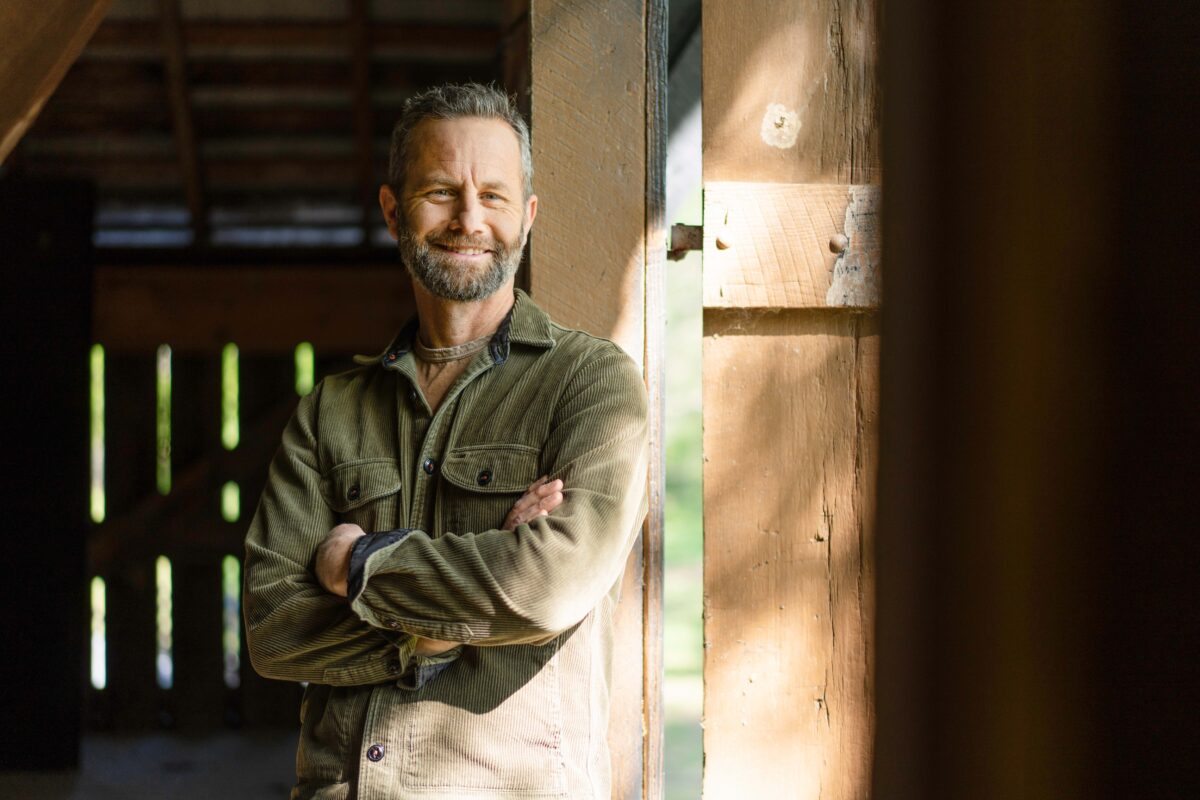Instantly famous as a teen actor portraying Mike Seaver in the ABC sitcom “Growing Pains,” Kirk Cameron is now in the prime of his life. With all his children grown, the 52-year-old still takes on acting roles, produces family-friendly movies, writes children’s books, and travels throughout the United States to champion the traditional ideals of America’s founders.
The work he chooses today literally projects his appreciation for family values, virtuous fatherhood, and patriotism for this country. In the last year, he produced “The Homeschool Awakening,” documenting the rise of at-home education in recent years. “As You Grow,” published by Brave Books, is Cameron’s attempt to instill virtue through a family-friendly children’s book. And inspired by his own experiences in adopting children, he played the role of David Scotton’s father in LIFEMARK, a film adaptation of the documentary “I Lived on Parker Avenue.”
Cameron is proud of his career accomplishments over the decades, but it was his early halcyon days of acting that led to the love of his life and, eventually, fatherhood. He met and married providentially, he said, his on-screen girlfriend, Chelsea, 32 years ago, smitten from the first moment he saw her.

“I had these visions of real life romance, and that became a reality,” he said. “And then we had six children. We adopted our first four, then had two kids the old-fashioned way. We finally figured out how to do this at home!”
The Role of Father
A few years in, he and Chelsea decided to homeschool. Initially, Cameron thought homeschooling was weird. But over the course of 10 years homeschooling, he realized they were “perfectly positioned and equipped to be the best teacher. It’s very empowering and exciting.”
Experiences in his childhood have had a major impact on his style of parenting. In raising his own family, his focus has always centered around spending time with his own children and prioritizing his relationships—just like his father did. Cameron recognizes that today’s culture can place too much of an emphasis on a child’s IQ, accomplishments, athletic talents, or intellectual abilities. He believes that if children do not learn traditional values from their parents, children will learn cultural values from someone else.
“Children spell love this way,” he added: “TIME.” That’s why it’s imperative that parents spend time nurturing them. “It is not an overstatement to say that men are more mission-oriented than the nourishing nature that moms find so easy to demonstrate with kids. For dads, … the challenge is to focus more on spending time and doing ‘life’ together. I can’t think of a more important relationship than a parent-child relationship.”

Whether he went bodysurfing in the waves with his dad, or watched him reassemble engines, or received help with math homework at the kitchen table, Cameron is less able to remember the details of what his dad said to him than the time spent together developing their relationship as father and son.
“I had the privilege of being raised by a really good father—not a perfect father, but a good father,” Cameron said. He even remembers how his dad made mistakes and asked for forgiveness to make him a better man. “The old adage is true: More is caught than taught. Good dads lead by example. They strive to be the kind of person they want their children to become.”
His Mentors
Cameron’s mother had a huge influence on his life, too. Although she was a fully committed homemaker, she eventually became his manager during his show business years and later took on the role of child talent agent, working from her garage. “She taught macramé in the garage. … She held Tupperware parties. And she was always there for us kids.”
Positive mentors can hugely impact a person’s destiny. Such is the case with Cameron, who met Dr. Marshall Foster, founder of the World History Institute. Cameron’s appreciation for American history grew as the historian taught Cameron about the founding of America, including the legacy left behind by the Pilgrims: a legacy of faith, morality, constitutional government, and liberty.
“Faith in God and the ability to apply correct principles from God’s words to every aspect of our life is what led to the prosperity and strength of America. America didn’t just pop out of the ether, but was based on a set of ideas in the Constitution and the Declaration of Independence that was carefully reasoned from Scripture,” Cameron added.

And to Cameron, there’s no better depiction of the freedom-seekers in early America who built this nation on long-lasting principles than the National Monument to the Forefathers in Plymouth, Massachusetts. Yet Cameron is surprised that most people have never heard of it. In his travels, he brings a scaled-down replica, teaching others why this is the freest, strongest, and most blessed nation on Earth. “The Forefathers set forth principles for our spiritual, moral, and political true north. There is no other formula that will result in the United States. It was created so brilliantly that it has resulted in a nation with more freedom than has ever existed.”
The largest solid granite monument in the country at 81 feet in height, the memorial honors America’s Forefathers and Foremothers whose quest was to build a successful, stable, and free society. And yet, Cameron recognizes other locations where freedom and prosperity can reign: where relationships are built. Where discoveries can be made.
“The other locations for moms and dads to pass on important values are your own kitchen table and your own backyard,” he said. This is where Cameron taught the most important things, like moral integrity and commitment and forgiveness, to his children. “This is where you can impart massive gifts to your children.”
From June Issue, Volume 3




